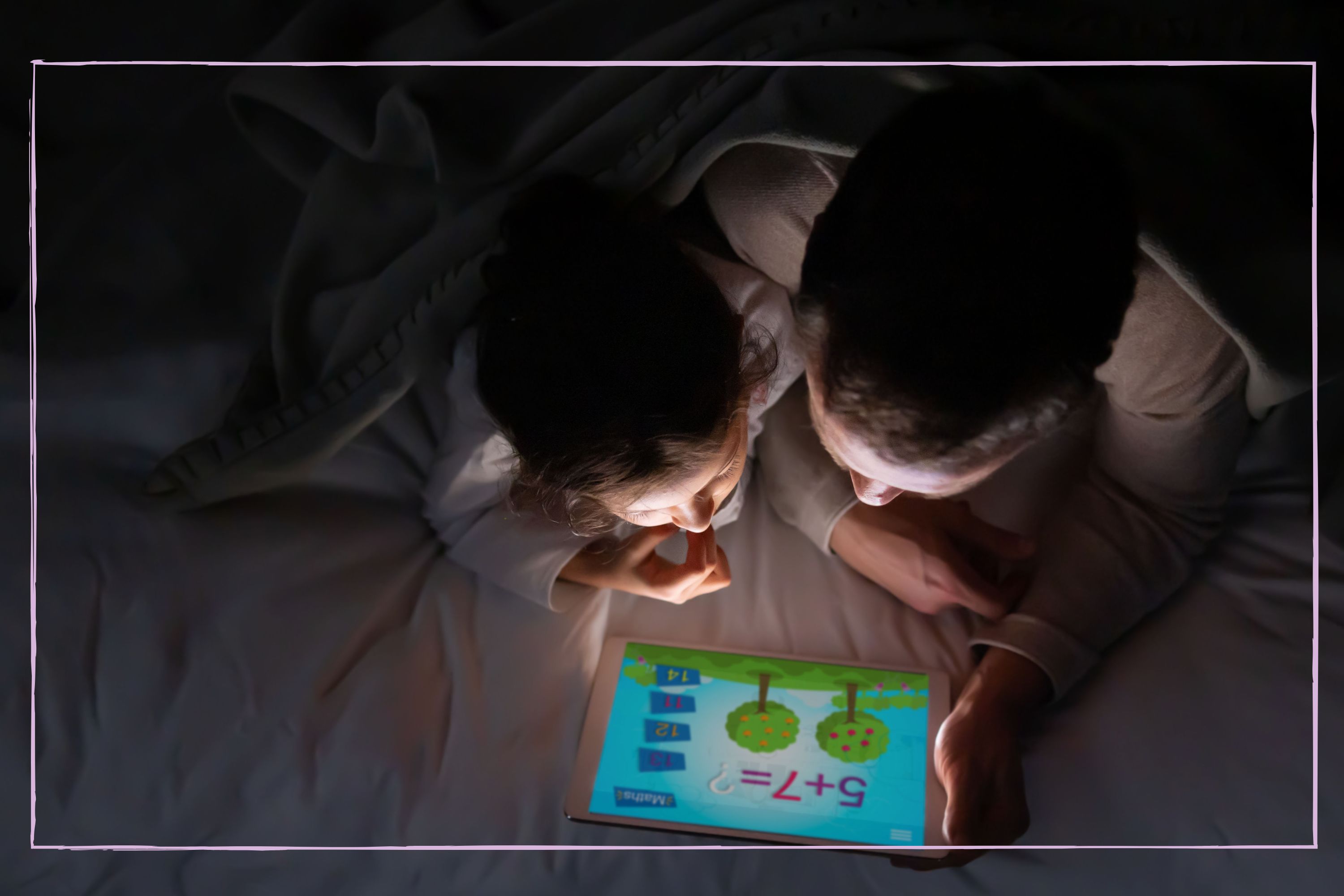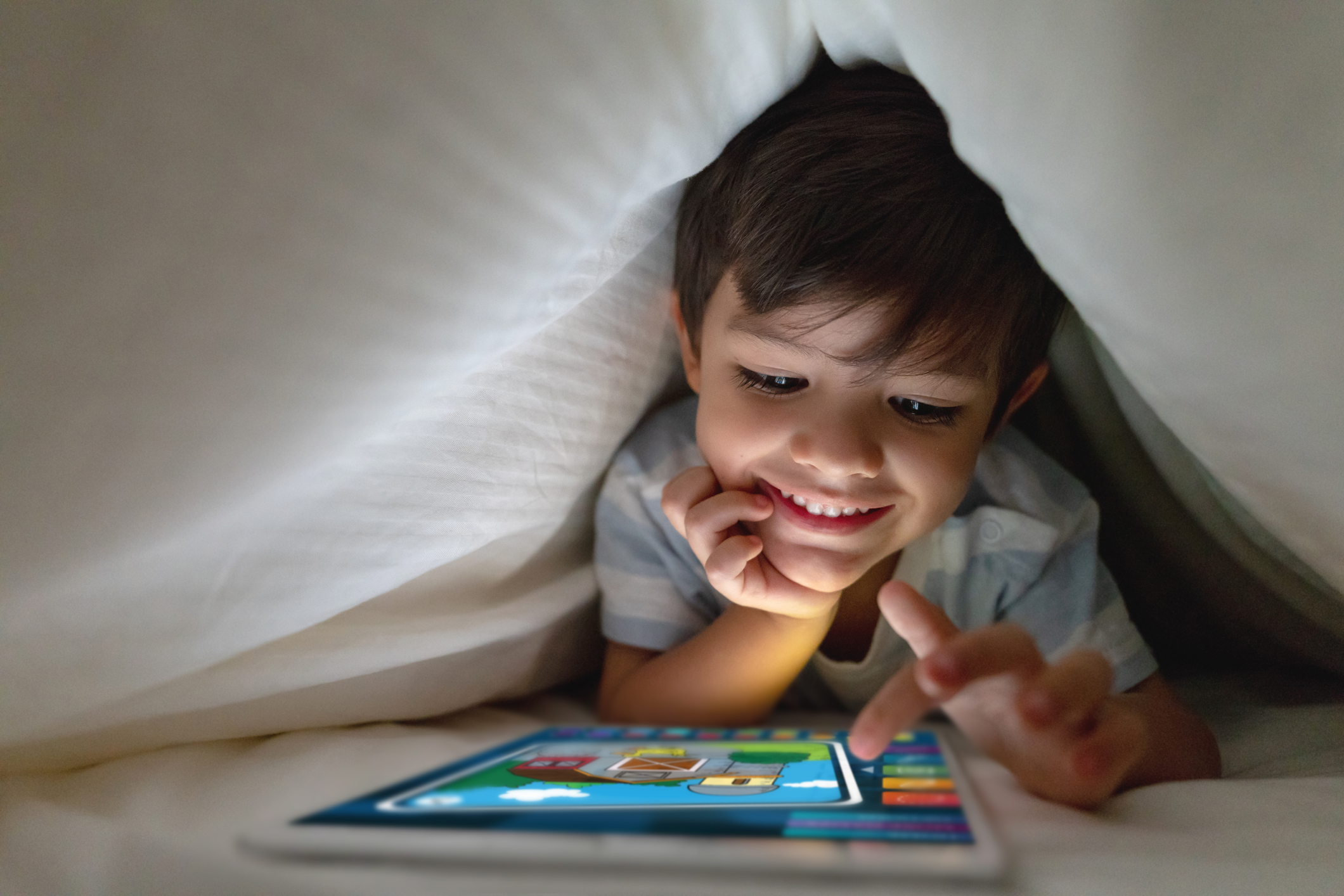Paw Patrol is one of the 10 most popular kids’ apps that are 'spying' on users, accessing camera devices and sharing data, a new study reveals - so what you can do to stop it?
60 per cent of the most popular kids apps have access to your child's social media data, do your kids use any?


Paw Patrol was ranked as one of the 10 most popular kids' apps that is spying on its child users, accessing camera devices and sharing data, a new study has found.
While many parents are concerned about how too much screen time can affect child development and look for ways to reduce kids' screen time - how many consider that technology companies are 'spying' on youngsters vis apps and games? A new study analysing the privacy policies of the most popular kids' apps however, have and found they are collecting vast amounts of information on children.
EarthWeb, the company that carried out the research, analysed the true scale of children’s privacy violations, 73 per cent of apps were found to share or sell your children’s personal information with third parties, and 60 per cent have access to social media profiles and camera devices when access is enabled in device settings.
And 72 per cent of children aged three to 18 have access to a tablet within their household, it's not surprising that nearly half of parents (49 per cent) are concerned about how companies are collecting data on their children, according to the Information Comissioner's Office highlighting a growing worry for parents in the digital age.
Examining other areas around child digital privacy that might shock parents, the study showed 23 per cent of apps have microphone access or store voice search recordings, and a third (33 per cent) track everything your child is doing while connected to the app including tracking eye movements, and physical activity data.
Looking at which popular apps track your children the most, the study reveals PAW Patrol Rescue World is tracking 61 per cent of your child’s personal and sensitive data, scoring high on personal and behavioural data collection.

Jason is an experienced editor and researcher who has an interest in business and technology, including social media, privacy and cryptocurrency.
Jason Wise, from EarthWeb said, "Our analysis reveals that a significant portion of the apps gathering the most data (70 per cent) are targeted towards children aged five and under, who may lack sufficient comprehension of the terms and conditions they're agreeing to amidst persistent push notifications and pop-ups, even after parental consent is obtained.”
GoodtoKnow Newsletter
Parenting advice, hot topics, best buys and family finance tips delivered straight to your inbox.
Addressing the ambiguity surrounding data collection practices in app privacy policies, of which 50 per cent failed to properly disclose how children’s data is collected, used, stored, and shared, the report's findings highlight the need for stricter regulations and enhanced transparency from app developers.
What you can do to stop apps from 'spying' on your child
- Read the privacy policies before agreeing to them or make changes before you do and keep up to speed on internet safety tips.
- On iPhones, there is a setting which says 'ask app not to track'. Turn that on and make sure that's on for any device that your kids or you use, The Washington Post tech Columnist Geoffrey A Fowler warned.
- Look at reviews of apps that your children are using Common Sense Media is doing privacy reviews of apps, it's worth doing some research particularly if it's an app that your child is spending a lot of time with.

Top 10 popular kids apps 'spying' on your child the most
- PAW Patrol Rescue World - Gaming for ages five and under. With its 61 per cent spy score PAW Patrol tracks seven strains of personal and two strands of sensitive data, including your child’s age, name and date of birth, gender, contact details and location data. Looking at behavioural data, the app monitors how your child uses it, and will gather persistent identifiers such as your IP address to determine the approximate location of your child.
- Roblox - Gaming for ages nine and over. There is 53 per cent of your child’s data access, including monitoring physical movements if connected to a VR platform and having access to your device’s address book.
- Lingokids - Play & Learn - Educational app for ages five and under (53 per cent)
- TikTok - Social media and messaging app for ages 13 and over (50 per cent)
- Noggin Preschool Learning App - Educational app for ages five and under, tracks 42 per cent of your child’s data, harvesting details on their interests, photos, date of birth, home address and gender information.
- Speech Blubs: Language Therapy - Educational app for ages five and under (42 per cent)
- Kiddopia - Kids learning games - Gaming app for ages five and under (42 per cent)
- Instagram - Social media and messaging app for ages 13 and over (38 per cent)
- Pj Masks: Racing Heroes - Gaming for ages five and under (38 per cent)
- Snapchat - Social media and messaging for ages 13 and over (38 per cent)
Key things to takeaway; across the 30 apps analysed, 96 types of personal information are revealed to be tracked, including 20 types of sensitive personal data and 47 types of behavioural data, with the average app tracking 8.8 strains of data on your child.
According to the study, 40 per cent of apps that collect the most data are from gaming categories, with educational apps tracking the same as social media and messaging (30 per cent).
Looking at download costs of the apps that track children the most, 90 per cent of them are free to sign up, with PJ Masks Racking Heros the only application charging users.
Only two apps in the study held a COPPA Safe Harbor Certification - a program to ensure practices surrounding the collection, use, maintenance and disclosure of personal information from children under the age of 13 are consistent with the principles and requirements of the Children’s Online Privacy Protection Act (COPPA).
In other family news, gameshow host Stephen Mulhern on why board games are better than computer games (and how you can get your kids to make the swap) and Screens aren't the only reason kids aren't playing outdoors, according to UK charities (and we remember #3 from when we were kids).

Selina is a Senior Family Writer for GoodtoKnow and has more than 16 years years of experience. She specialises in royal family news, including the latest activities of Prince George, Charlotte, Louis, Archie and Lilibet. She also covers the latest government, health and charity advice for families. Selina graduated from the University of Sheffield in 2006 with a degree in Journalism, and gained her NCTJ and NCE qualifications. During her career, she’s also written for Woman, Woman's Own, Woman&Home, and Woman's Weekly as well as Heat magazine, Bang Showbiz - and the Scunthorpe Telegraph. When she's not covering family news, you can find her exploring new countryside walking routes, catching up with friends over good food, or making memories (including award-winning scarecrows!)